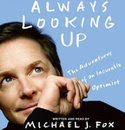Personal
Just as there are several different theories of education there are also several different philosophies. The three theories that were discussed in the previous section can fit into the different philosophies. Each of the different philosophies has different well known names that have championed that philosophies cause. The remainder of this section will discuss the philosophy of realism, one of its champions, and which of the three theories it fits into.
While there are several different philosophies that I can agree with during certain situations and for certain students there is only one that I think fits most situations and students; that philosophy is realism. Realism is the philosophy “that things exist objectively: the theory that things such as universals, moral facts, and theoretical scientific entities exist independently of people’s thought and perceptions” (Monteros, F. S., 2009). Basically this philosophy is claiming that no matter what someone may perceive there are matters that are no matter how or what they are perceived. For example, rocks are rocks. They are rocks and will be rocks whether or not one perceives them to be or not; rocks are rocks. Realism is a philosophy of objectivity.
The philosophy of realism has been contemplated for centuries. In fact realism and its objectivity is one of the longest contemplated philosophies in history. Aristotle is one of the first champions of this philosophy. He was thought to be equal to his teacher Plato and his Lyceum rivaled the Academy (Monteros, F. S., 2009). Aristotle discussed the philosophy of realism has not only a philosophy of objection but also a philosophy of the human senses (Monteros, F. S., 2009). He believed that one could find realism or objectivity through the senses (Monteros, F. S., 2009). This is a huge idea and contribution to such a discussion of philosophy. Aristotle and his different contributions are what make him a champion for the philosophy of education.
Aristotle and the philosophy of realism seem to fit into the theory of functionalism. Functionalism perceives education to enhance and complete social and economic order within society (Monteros, F. S., 2009). Therefore, functionalists agree that schools are a place to “teach the economic, political, and cultural practices and norms of the dominant society” (Monteros, F. S., 2009). Functionalism is a theory of order and so is realism. Aristotle and realism believe in finding order as well, through the senses. Therefore if one goes to school and learns economic, politics, and other such subjects through the curriculum of natural law and senses then they will be learning through a functional realist perception.
to be continued...

No comments:
Post a Comment